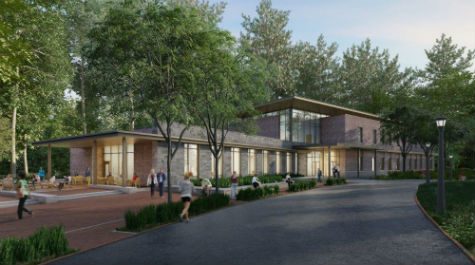Every so often, a new meme about the College of William and Mary’s Counseling Center shows up on Facebook, and with each post the negative haze surrounding our primary mental health resource on campus seems to grow. It was easy enough to ignore these cautionary tales when they were accompanied by pixelated images and sarcasm — until it happened to me too.
Without sharing too much information, I sought out the Counseling Center to receive help for a mental health issue not listed in the American Psychiatric Association’s DSM-5 manual in order to hopefully get accommodation for the spring semester. For those of us who steered clear of psychology courses, the DSM-5 is the most current manual used by clinicians and psychiatrists to diagnose psychiatric illnesses. Because my issue is not yet official, I knew getting help would be a challenge, but that’s what the Counseling Center is here for, right? According to their mission statement, the Counseling Center offers services that include, “the provision of mental health practices intended to reduce psychological distress, treat clinical conditions, and enhance well-being and personal growth.” To make things even better, these services are “free,” paid for by me and the rest of the student population as part of our hefty tuition bill. Everything sounded great; I booked an appointment — one three weeks away, but hey, my mental health issues weren’t going anywhere — took a seat in that beautiful new waiting room, and finally sat down with my assigned therapist for an initial assessment.
To start, my therapist went through my forms before asking about why I came in. I quickly asked if she knew anything about my specific issue — she admitted she didn’t, and just like that I knew we were off to a rocky start. Soon after I began explaining my issue and how it was hindering my everyday life, she informed me that the Counseling Center could not help.
My therapist’s explanation was that the Counseling Center cannot diagnose students and counselors cannot help me find new accommodations without an official diagnosis. The catch? My specific issue isn’t in the DSM-5, meaning it can’t be diagnosed at all, anywhere. My therapist went on to mention outside providers — who of course also cannot provide a diagnosis for this issue that “doesn’t officially exist”— without making any effort to connect me with those providers.
I can understand all that red tape, but just because my issue isn’t “official” doesn’t mean it’s not real, and it doesn’t mean I don’t need help. So, I told her I understood, and I waited, tearfully, for her to continue with the session. I don’t know what exactly I was waiting for — an offer to find another therapist who understood what I was going through, or maybe a plan that didn’t involve accommodation but provided support anyway. At the very least, I waited for compassion. I waited for her to talk to me about how I was feeling, to tell me how else the Counseling Center could help even if the official doors were closed. I waited to hear that she, and by extension, the Counseling Center, acknowledged me as a student who needed help, who was upset and frustrated and swimming under the devastation of opening up only to be shot down. I waited, crying, and my therapist said nothing. I kept waiting. Eventually, when I realized she couldn’t help me, and from my perspective, didn’t want to help me, I mumbled something about having things to do, and I got up. I couldn’t just sit there in front of a therapist who not only couldn’t help me, but didn’t try. Her final words were to point me towards the bathroom, presumably to pull myself together before making the shameful, tearful walk through the waiting room. I want to hope it was my reputation she was looking out for.
I walked into the Counseling Center tentatively hopeful. Twenty or so minutes later, I went away from the Counseling Center utterly hopeless.
It’s not my goal to discourage others from trying to get help from the Counseling Center, but it is my goal to caution. I can easily say that the Counseling Center helps some of its patrons some of the time. Maybe most of the time — it’s hard to judge when negativity is louder than satisfaction. But from my own experience as a student struggling with a misunderstood and still unofficial mental health issue, I can also say that unless you arrive at the Counseling Center with a cookie-cutter case of college stress or a previous diagnosis in your back pocket, the Counseling Center can cause more harm than good. It can promise you help and compassion and leave you crying and turned away from their gleaming glass doors.
So, what do you do? You text your friends to remind yourself that someone on this campus cares. You post a scathing meme on Facebook to empathize with peers who’ve also been turned away. You write an article while your eyes are still puffy from crying because you don’t want to forget what it feels like to ask for help and have the door slammed in your face.
Email Naomi Gruber at
ncgruber@email.wm.edu.

